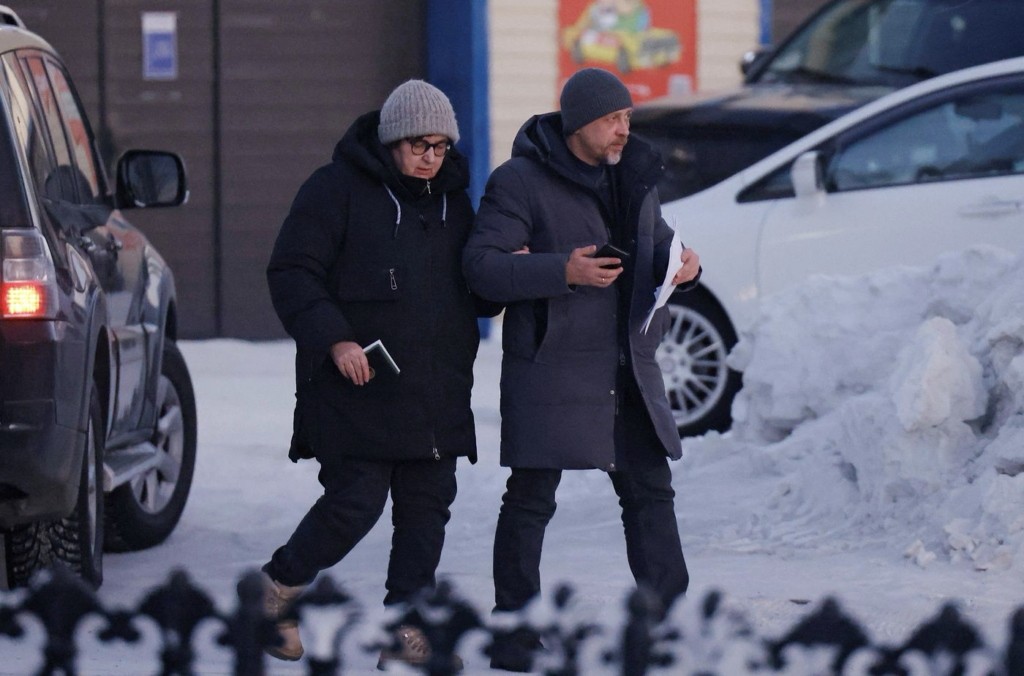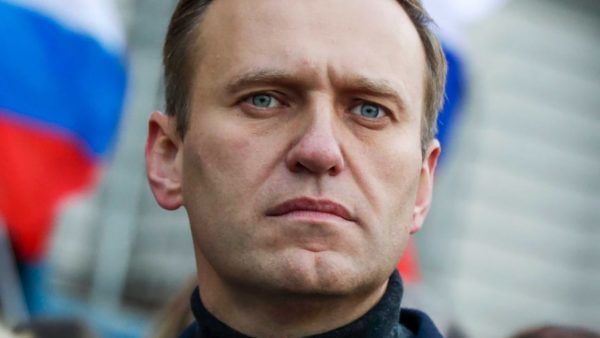Russian authorities were accused of being “killers” who were “covering their tracks” by refusing to hand over his body
Moscow- Supporters of Alexei Navalny confirmed his death in an Arctic prison camp but said his mother was being prevented from seeing the body of the Russian opposition politician.
Navalny’s spokeswoman Kira Yarmysh said on social media that his death had occurred shortly after 2 p.m. local time on Friday, citing an official statement given to his mother by the authorities.
Russian authorities said Navalny collapsed after a walk at the prison colony on Friday, lost consciousness and couldn’t be revived. They said the cause of death is still being established.
His team alleges that he was murdered but hasn’t provided evidence for that claim.
Navalny’s lawyer and his mother, Lyudmila, were told at the prison on Saturday that the activist had died of “sudden death syndrome,” according to a post on X by Ivan Zhdanov, a close aide to Navalny.
“We are convinced that Alexei was killed yesterday and the order to do this was given personally by Putin,” Yarmysh wrote.
The Kremlin has said any accusation that it is responsible for Navalny’s death is “unacceptable.” It didn’t immediately respond to a request for comment on Yarmysh’s remarks on Saturday.
Yarmysh said an employee of the IK-3 prison colony in the Yamalo-Nenets region of Russia where Navalny was incarcerated, told Navalny’s mother that the body had been transferred to Salekhard by state investigators carrying out an examination.
But when his lawyer and mother arrived at the morgue after flying to Salekhard, they found it closed and were told that the body wasn’t there, Yarmysh said.
“We demand that Alexei Navalny’s body be immediately handed over to his family,” she wrote on X.
“The colony cheated us,” top Navalny aide Ivan Zhdanov said on X.
Navalny, who was 47 and had been in jail since 2021, was serving three prison sentences amounting to more than 30 years on charges he and his supporters said were fabricated.
He was detained after returning from Germany, where he was recovering from what German doctors said was poisoning with a Soviet-era nerve agent, Novichok. Navalny blamed his poisoning on the Kremlin, which denied involvement in any attempt to harm him.
British Foreign Minister David Cameron told broadcaster Sky that the U.K. will take action in response to Navalny’s death and he called on other countries to follow. “There should be consequences when appalling human rights outrages like this take place,” he said.

Lyudmila Navalny, the mother of the late Russian opposition leader, at the prison camp on Saturday. PHOTO: MAXIM SHEMETOV/REUTERS
The foreign minister of the Group of Seven countries issued a statement expressing “outrage” and demanding that Moscow clarify the circumstances of his death.
Navalny had spent much of his three years behind bars in isolation chambers and deliberately deprived of sleep.
Russia’s embattled opposition, who now lives in exile, said the death of a man who for years was Putin’s biggest critic and political rival marks the effective end of a period in Russian politics where some forms of dissent were still tolerated by the state.
After his death was announced, makeshift memorials emerged and rallies commemorating Navalny’s life were held in several countries. In Russia, where street protests are swiftly and often violently suppressed by the state, Navalny supporters gathered in the squares of some cities to lay flowers in his honor in silence.
In Moscow on Saturday, some of those who attended flower-laying ceremonies brought posters reading “Murderer,” according to Russian opposition channels covering the events. They said more than 100 people were detained at such ceremonies across Russia that day.
Some people in Moscow brought flowers for Navalny to a memorial dedicated to another opposition politician and vocal President Vladimir Putin critic, Boris Nemtsov, who was murdered on a bridge overlooking the Kremlin in February 2015. The group overseeing the memorial posted footage of two men in civilian clothing stuffing the flowers into a trash bag and hauling them away.
The news of Navalny’s death arrived at the start of the Munich Security Conference, an annual meeting of security leaders that used to welcome Putin but that has instead been focused on the war in Ukraine. France and Germany timed the signing of bilateral security guarantees with Kyiv with the start of the conference on Friday.
Shockwaves from the news of Navalny’s death eclipsed the conference’s agenda and reverberated through all of its debates. Vice President Kamala Harris, Secretary of State Antony Blinken and assorted other dignitaries swiftly adjusted their speeches to include strong criticism of Putin and his crackdown on Navalny and all critics of his regime.
“After the assassination of Navalny, it would be absurd to see Putin as the legitimate leader of the Russian state, he is a thug who holds power through corruption and violence,” said Ukrainian President Volodymyr Zelensky.
WSJ


Leave a Reply
You must be logged in to post a comment.